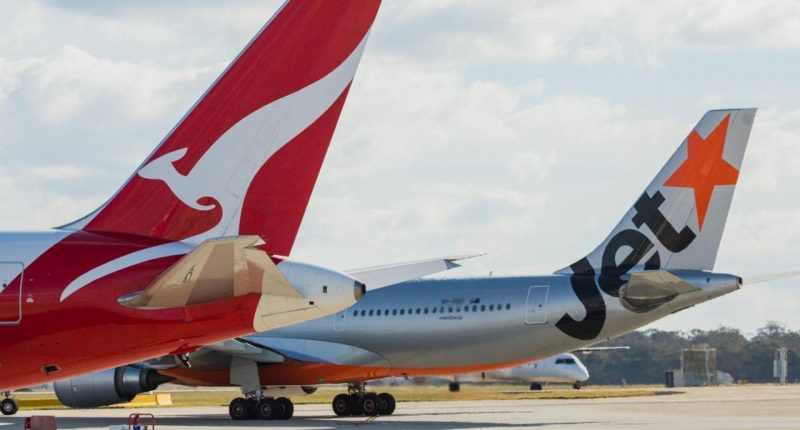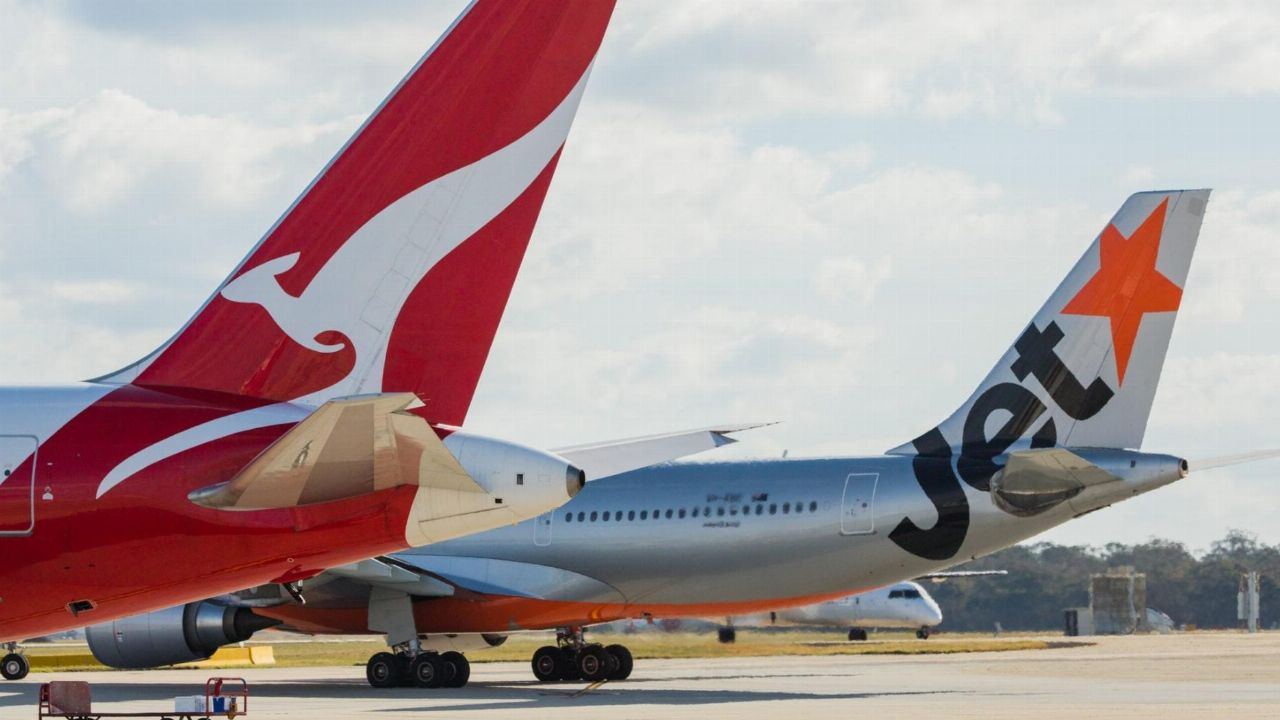- Airlines around the world are facing an existential threat as the coronavirus pandemic threatens their very existence
- Carriers from every continent are going under or burning cash at unprecedented rates as border closures and virus-wary travellers reduce capacities below 10 per cent
- With half the world’s aircraft in storage and most seats unoccupied in those that are flying, even mass layoffs and huge government bailouts have failed to breathe life into the flagging industry
- It’s projected global airlines will lose around US$419 billion (A$611.74 billion) in revenues this year, with no clear vision of when — or if — things might return to normal
- Several airlines have taken legal action to have harsh travel and quarantine restrictions lifted
- However things proceed from here, it’s going to be a long haul for the embattled airlines
Airlines around the world are facing an existential threat as the coronavirus pandemic threatens their very existence.
Carriers from every continent are going under or burning cash at unprecedented rates as border closures and virus-wary travellers reduce capacities below 10 per cent.
It doesn’t take a rocket scientist to realise the incredible global infrastructure around air travel costs a lot of money to maintain.
With half the world’s aircraft in storage and most seats unoccupied in those that are flying, even mass layoffs and huge government bailouts have failed to breathe life into the flagging industry.
Capacity lost
There’s not an airline in the world right now that’s operating in a business-as-usual mode. Our domestics, Qantas and Virgin, are not unique in having laid off staff and opting to reduce flights by over 80 per cent.
In the U.S., passenger numbers decreased by 95 per cent between March and May. The stories are similar around the world, with global brands and local providers alike feeling the pinch.
Qantas got on the front foot and stood down two-thirds of its workforce almost as soon as the first flights were grounded. British Airways (BA) and Emirates have shed over 20,000 jobs between them in flight staff alone.
The knock-on effects have an even broader scope, with airport staff, ground crew, cleaners, drivers and many others with no flights or passengers to service.
Boeing has sold fewer planes this year than it has at any time since 1962, leading to further lay-offs and big cash burns.
Even with the mass lay-offs and grounded aircraft, industry overheads remain enormous. BA is burning 178 million pounds (around A$322.18 million) per week.
It’s projected global airlines will lose around US$419 billion (roughly A$611.74 billion) in revenues this year, with no clear vision of when — or if — things might return to normal.
Ready for take-off
Many providers are itching to get back to the skies.
International Air Transport Association (IATA) Director-General Alexandre Juniac says governments are better-placed to respond to future outbreaks now, and any further lockdowns should be avoided, even if a second wave arrives.
“Now if a second wave comes back, we hope that governments will take different measures, because they will have the methodology, the equipment, the readiness, the plans, and if we could avoid complete lockdown that would be better for everybody, for the whole economy and for the air travel industry as well,” Alexandre said.
“But if there is no second wave, then the worst is behind us,” he added.
With enhanced safety and sanitation procedures touted to minimise risks of infection, airlines are taking bold strides to ramp up capacities.
In the U.K., Ryanair, BA, and EasyJet have begun legal action to overturn what they see as draconian government quarantine measures.
Ryanair CEO Michael O’Leary says the U.K. must lift restrictions in line with other European countries.
“Ryanair’s going back flying with a thousand flights each day from July 1,” he stated.
“Those flights will operate. We think they will be heavily booked outbound. But the return flights, the inbound traffic, is being devastated by this completely useless and defective quarantine measure.”
Ryanair CEO, Michael O’Leary
“I think in their heart of hearts, the government actually would like the courts to strike it down, because it would get them off the hook that they’ve now kind of got themselves caught on,” he added.
Striking the balance between human costs and economic imperatives has proved to be something of a political unicorn of late.
With increased pressure from the airline industry, along with all the other service and hospitality providers which rely on it, it may be only a matter of time until flights return to capacity once again.
If the cruise industry provides any kind of benchmark, it’s likely people won’t choose to place themselves in flying Petri dishes.
However things proceed from here, it’s going to be a long haul for the embattled airlines.







